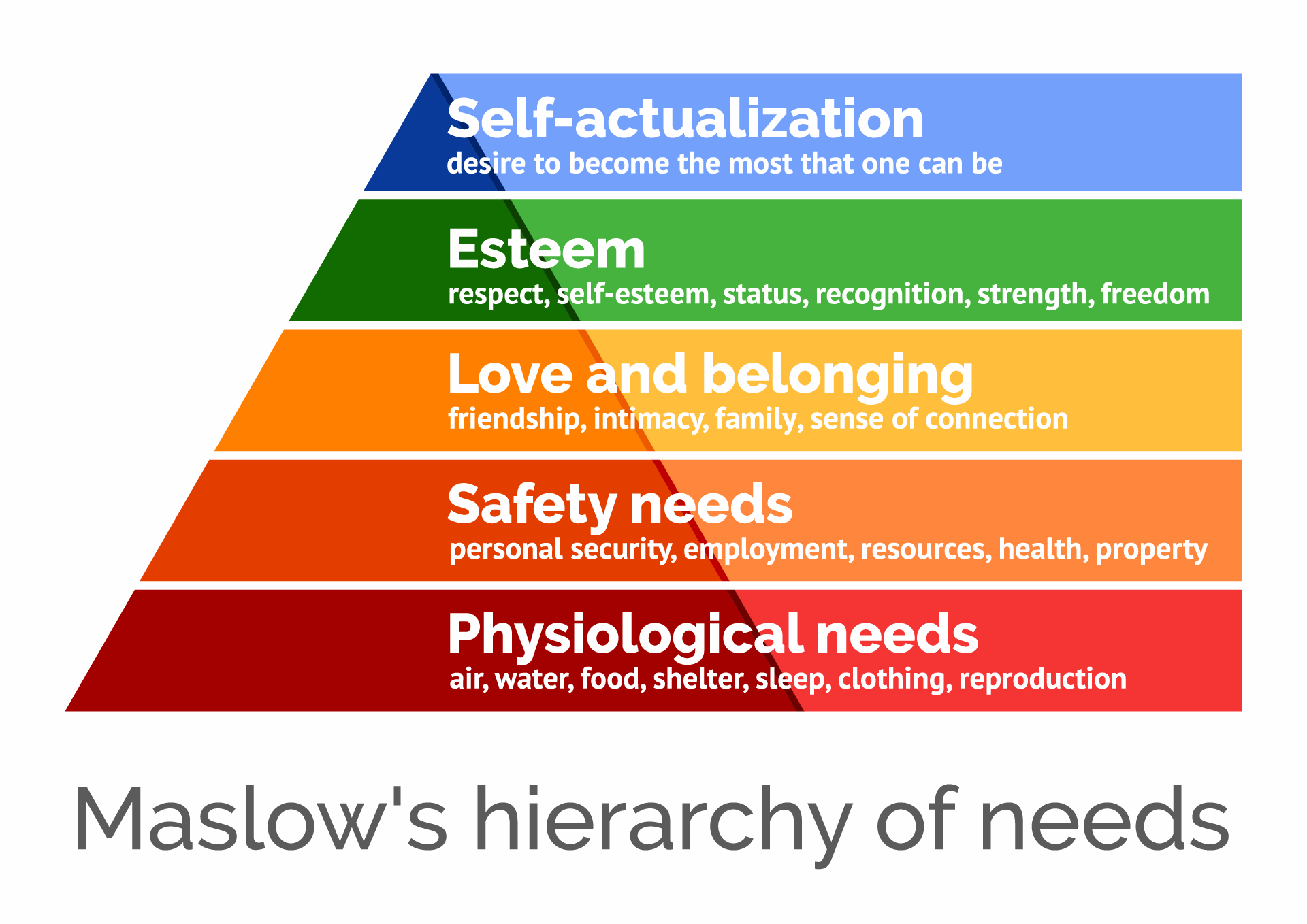
In their quest to build thriving workforces, HR teams have employed various tactics throughout the years. Compensation, work-life balance, and professional development strategies have all helped enhance employee engagement. Yet increasingly, evidence points to an even more impactful strategy: the cultivation of workplace purpose.
When employees feel pride and purpose in their roles, they are more likely to stay with their company longer and perform at their peak. Professional meaning is no longer a nice-to-have, but a must-have — particularly among Gen Z and Millennial workers.
Growing demand for purpose-driven work aligns with a global thirst for self-actualization in people’s lives. In this article, we’ll explore the rise of purpose-seeking and discuss how this phenomenon can be applied to HR talent attraction and retention strategies
Over twenty years ago, Joe Pine and James Gilmo introduced the “progression of economic value” model. According to this model, drivers of economic growth have evolved over millennia: from commodities to goods, to services, to experiences, and finally, to personal transformation.
In the transformation economy, businesses sell experiences that foster personal growth. Unlike in years past, consumers are no longer looking for mere goods or services — they want to embark on a journey of lasting change. Whether they’re buying a new piece of furniture or a coaching program, the goal of today’s customers is personal transformation.
While it may not seem obvious, at first glance, the transformation economy is highly relevant to employee satisfaction and retention. Just as buyers seek out purchases that spur personal growth, employees are increasingly on the lookout for transformative professional experiences – in other words, employee transformation.
It’s often said that employees are a company’s most important customers, as their satisfaction is what ultimately generates company profit. By prioritizing employee well-being and transformation, companies can cultivate a high-performing workforce.
When employees seek out employee transformation, what they’re really after is a sense of personal accomplishment that reflects their unique purpose.
The attainment of one’s unique purpose is known as self-actualization, and it’s a fundamental human desire according to Maslow’s hierarchy of human needs. Self-actualization sits at the top of his hierarchy since people must fulfill basic needs like safety and well-being before shifting their focus to self-actualization (as Maslow famously asked, “What happens to man’s desires when there is plenty of bread and when his belly is chronically filled?”).

As the world has become safer and more prosperous, people have more time, freedom, and faculties to seek out purpose and transcendence in the workplace. Once employees have secured a livable wage and safe working conditions, they can set their sights on loftier career aspirations like professional development and leadership opportunities. In essence, self-actualization takes people beyond their basic drive to survive and into a state of thriving.
Because everyone has a unique purpose, set of strengths, and personal values, self-actualization manifests in a myriad of ways — and this is true in the workplace as well. For example, someone who feels their purpose is to motivate others may achieve self-actualization as a manager, while someone who feels their purpose is to tackle complex challenges may find meaning as a software developer.
No matter how self-actualization presents itself, it is experienced as a transcendent state of connection to oneself and others. People who have achieved self-actualization typically feel a sense of flow and creativity that keeps them highly engaged with the task at hand.
Some examples of self-actualization include:
Purpose is the key driver behind self-actualization. Thus, for HR leaders to create workplace cultures of employee transformation, it’s essential to cultivate an environment of purpose-driven work.
What is purpose-driven work? Purpose-driven work is when an employee’s professional duties sync with their unique purpose and spark a sense of fulfillment.
Companies can foster purpose-driven work either by prioritizing the individual employee experience or by creating a strong, mission-driven work culture. Employees are likely to feel purpose when they’re achieving their personal goals, as well as when they recognize their unique role in a larger company or societal mission.

There are several different types of purpose-driven work environments. While some of these work cultures involve the cultivation of individual pride and purpose, others are more focused on company pride and purpose. The following are some categories of purpose-driven workplaces:
According to Gallup CEO Jon Clifton, “…the number of people expressing stress, sadness, anxiety, anger, or worry has been on the rise, reaching its highest levels since the Gallup surveys began.”
This statistic is shocking, especially considering that work conditions are safer and more equitable than they’ve ever been — with much less tolerance for discrimination, unfair pay, and other workplace woes. Of course, there continues to be room for improvement, but one would think that worker satisfaction should be at a historical peak.
What’s the reason for this discrepancy? There is likely a widespread gap between worker expectations for purpose-driven work and anachronistic workplace cultures. Even as a growing number of employees strive to attain purpose in the workplace — particularly in the aftermath of the pandemic — many companies are not adequately prioritizing the employee experience.
Workplace meaning is no longer an extra perk for employees — it’s a baseline requirement. And when this need isn’t met, employees are stressed, unhappy, and disengaged. Fortunately, there are many company initiatives that can improve workplace satisfaction and foster employee transformation. For example, empathetic management practices, engagement and recognition programs, and flexible scheduling are some of the many strategies that employee-focused companies are implementing.

When employees feel more meaning and pride in their work, it translates into several big benefits for employers, including:
Self-actualization is a basic human need, and if this need isn’t met in the workplace, employees will often look for new jobs. According to Great Place to Work, employees are 2.7 times more likely to stay with a company when they feel that their work serves a meaningful purpose.
As author and consultant Afhdel Aziz points out in a Forbes article, people-focused HR is particularly vital in the current high-tech era. He explains that “…in the age of AI, it is even more important than ever before to treat employees as humans, not assets: empathizing with what is most important to them: belonging, safety, inclusion, and purpose.”
A study from McKinsey found that among employees who report feeling that their purpose aligns with their employers, 77% are engaged. Another study found that at companies that prioritize professional development — an initiative that inspires meaning and purpose — employee engagement is higher.
WorkProud research has identified workplace pride as a key predictor of superior workforce quality and output. When employees feel fulfilled and proud of their jobs, they are naturally more productive and motivated.
This correlation is something that company leadership broadly recognizes. In a survey by Purpose Under Pressure, 92% of CEOs agreed that if their companies were more focused on purpose, their organization would be more successful.
Every organization — no matter its unique mission, value proposition, or HR budget — can take steps to promote feelings of pride and purpose. Here are some practical ideas:
Employees need to feel like they’re part of a larger mission, and that their actions are having an impact on society. Even the most seemingly mundane of companies can inspire meaning by formulating a mission statement that speaks to a bigger picture. Once this mission statement is developed, it must be consistently communicated to team members to regularly infuse purpose.
As mentioned earlier, career growth is a huge source of meaning for employees. Training programs, career mentoring, and skill development opportunities are all great ways to help employees achieve employee transformation. Another best practice is to clearly delineate paths to professional advancement and promotions within the company.
As noted by famed psychologist Carl Rogers, a positive self-image is a necessary precursor to self-actualization. By regularly recognizing and celebrating employee achievements, company management can bolster employee self-esteem. Public praise, awards, financial incentives, and one-on-one feedback are all great forms of recognition that can improve job satisfaction and performance.
When company communication is transparent and effective, employees gain a greater understanding of the organization’s mission and their role in achieving it. This helps workers feel more connected to the company’s purpose and proud of their unique contributions. Consider implementing communication initiatives like company newsletters, cross-departmental meetings, and social media posts.
Relationships with others are deeply purposeful and can inspire a sense of belonging. Arranging team-building retreats, workshops, and team projects are all great ways to foster team unity and reinforce a sense of collective success and company pride.
Workers crave self-actualization, yet they also know they can only start focusing on professional purposes if their basic needs are met. Accommodating preferences for remote work, providing paid time off, and offering wellness perks primes employees to stay healthy and achieve their highest potential. It also demonstrates caring and appreciation, which can cultivate company pride.
With WorkProud, it’s that much easier to nurture a work culture of camaraderie, meaning, and personal growth. Our end-to-end rewards and recognition software gives employees and managers the tools they need to recognize accomplishments, promote goal setting, and enhance company-wide communication. WorkProud has helped companies in a range of industries to improve employee engagement and strengthen feelings of workforce pride. Try WorkProud today — click here for a free demo!
WorkProud is committed to helping its clients create a unified approach to the employee experience by helping them build cultures of workplace pride. Trusted by millions of users at some of the world’s most recognized employer brands, WorkProud delivers a comprehensive approach to building company cultures that inspire people to be Proud of their Work and Proud of their Company.
Here you will find insights curated for leadership seeking in-depth industry knowledge. Explore comprehensive studies, helpful guides, and expert white papers.
*By selecting “VIEW RESOURCES,” you agree to WorkProud’s Privacy Policy. You may unsubscribe from our emails at any time. Please note when unsubscribing: it may take up to 10 business days for your request to take effect.